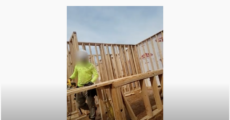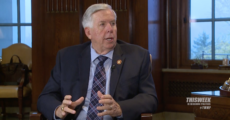In the past year, we have gained a deeper appreciation for our homes. Our homes were our sanctuary as we faced a pandemic and celebrated reunions with loved ones.
To remain secure and comfortable, homes require maintenance and updates. Older homes may require significant energy efficiency upgrades. Missourians who can’t afford this investment can fall victim to a program that seems noble on the surface but can quickly drain their wallets.
Property assessed clean energy — known as PACE — offers alternative financing for energy efficiency and renewable energy improvements on private property. PACE district boards of directors, when authorized by local governments, fund the up-front cost of improvements by placing tax liens on the properties. For residential PACE (R-PACE), homeowners repay the costs — plus fees, interest, and collection charges — over a period of time ranging from five to 20 years. The costs are paid as annual assessments added to the property tax bill. The program is promoted as affordable because the costs are spread throughout many years. In reality, R-PACE is the payday loan version of home improvement financing. Because interest and fees can more than double the cost of improvements, individuals could lose their homes.
Missouri is one of four states with R-PACE. The PACE Act passed by the General Assembly in 2010 was added to a heavily amended bill during the second-to-last day of session. There was only one public hearing on the original PACE bill and little floor debate. There was no discussion of how this law would negatively affect homeowners, especially those with limited means.
More than a decade later, the repercussions of R-PACE are frightening. An R-PACE lender sold solar panels to a Greene County homeowner with an appraised property value of $27,100. With the additional R-PACE assessment on the home, the tax bill more than quadrupled from $282 to $1,210, at an interest rate of nearly 10 percent.
Missouri county collectors have similar examples. R-PACE loans are complicated. The proposal combines the improvement bid, financing information, and tax impact, making it difficult for homeowners to shop around or perform due diligence. They may not sit down with qualified lenders to consider their options or examine important details. Instead, home improvement contractors take the loan applications. These contractors are conflicted in their roles as lenders because they also are selling the products to be financed, and they are not trained, certified, and supervised as lenders.
Homeowners typically are not aware of the impact R-PACE loans have on property tax bills or escrow accounts. R-PACE lenders are not required to consider a homeowner’s ability to repay the loan or make a single large payment annually. If they cannot afford to pay the bill at the end of each year, homeowners can incur steep tax penalties and lose their homes.
Homeowners are not protected by basic consumer lending standards or disclosure requirements when it comes to R-PACE loans. This may be because the law intended the program to be locally managed. R-PACE boards and local governments that have implemented the program outsource the management to out-of-state finance companies. One of these companies is in Chapter 11 bankruptcy partly because of consumer legal actions.
The Missouri Bankers Association has sought to reform the state’s R-PACE program for several years. This could finally be the year lawmakers pass reforms that protect Missouri homeowners.
Legislation already approved by the Missouri House provides R-PACE program oversight by the Missouri Division of Finance, requires R-PACE lenders to explain to consumers the details and costs of the loan, and ensures consumers retain some equity in their homes. The bill places critical safeguards in the law to lower the risks for consumers. Sponsored by Rep. Bruce DeGroot and Sen. Sandy Crawford, the measure is supported by many groups, including the Missouri Division of Finance, the Missouri Independent Bankers Association, Mortgage Bankers Association, Missouri Realtors, credit unions, and others.
For this bill to benefit Missourians, it needs to pass the Senate. It is our hope the Senate acts on this measure to protect homeowners from the deceptive practices of R-PACE lenders. With the bill’s passage, Missouri homeowners, especially the most vulnerable, will have peace of mind knowing their homes will remain their sanctuaries.

Max Cook is the president and CEO of the Missouri Bankers Association.
















